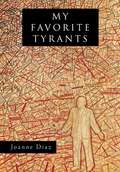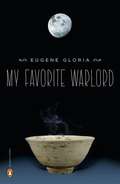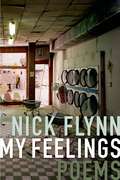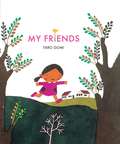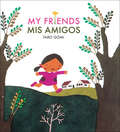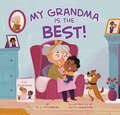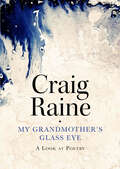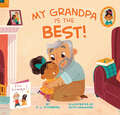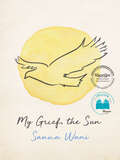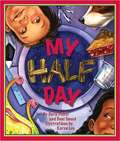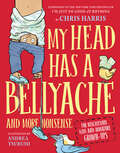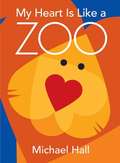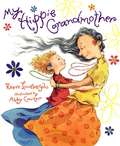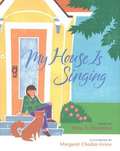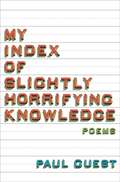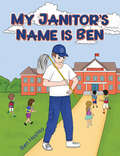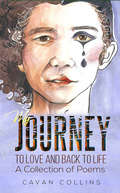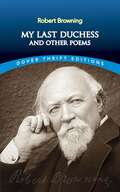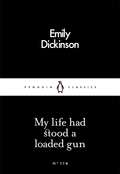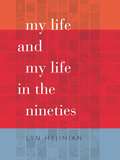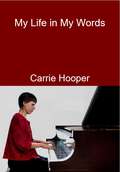- Table View
- List View
My Favorite Book
by Good Will IncIn these short, nostalgic, easily understood poems compiled by Good Will Inc. children take pleasure in the simple elements in their lives including birds, grandmothers, gardening, sharing with friends, helping parents, getting up in the morning and going to bed at night. Preschoolers will enjoy having this poetry read to them again and again and will find themselves naturally memorizing their favorites. These poems remind children to pay attention to and be thankful for core values and experiences with family, nature, beauty and friends. Some pictures are described by the validator.]
My Favorite Tyrants
by Joanne Diaz"Winner of the 2014 Brittingham Prize in Poetry, selected by Naomi Shihab Nye" The word "tyrant" carries negative connotations, but in this new collection, Joanne Diaz tries to understand what makes tyranny so compelling, even seductive. These dynamic, funny, often poignant poems investigate the nature of tyranny in all of its forms-political, cultural, familial, and erotic. Poems about Stalin, Lenin, and Castro appear beside poems about deeply personal histories. The result is a powerful exploration of desire, grief, and loss in a world where private relationships are always illuminated and informed by larger, more despotic forces.
My Favorite Warlord
by Eugene GloriaA third collection from an award-winning poet whose "gift is breathtaking" (Naomi Shihab Nye) The themes of identity, relationships, and the poet's sense of origin are at the heart of Eugene Gloria's rich and captivating new collection. The title poem weaves together Japan's sixteenth-century warlord Hideyoshi with a meditation about the poet's father's dementia; "Here on Earth" embraces post-racial America and the speaker's own sense of displacement in the Midwest. In elegy and psalm, as well as ancient forms from Asia such as the haibun and pantoum, these elegant and passionate poems enact rage, civility, love, travel, and art as well as explore Gloria's own fears of frailty and erasure. .
My Feelings: Poems
by Nick FlynnA daring and intimate new book by the poet and memoirist Nick Flynn, "a champion of contemporary American poetry" (Newpages). . . the take from his bank jobs, all of itwill come to me, if I can just get him to draw mea map, if I can find the tree, if I can findthe shovel. And the house, the mansion hegrew up in, soon a lawyer will passa key across a walnut desk, but even thislawyer will not be able to tell me where thismansion is. —from "Kafka" In My Feelings, Nick Flynn makes no claims on anyone else's. These poems inhabit a continually shifting sense of selfhood, in the attempt to contain quicksilver realms of emotional energy—from grief and panic to gratitude and understanding.
My Friend's Got This Problem, Mr. Candler
by Mel GlennFourth in a series of photo-illustrated poetry collections, this one centers on the high school guidance counselor and the variety of students and parents he encounters during the week.
My Friends
by Taro GomiVibrant illustrations and a simple, rhythmic text are perfectly blended in this spirited homage to friendship as a little girl recounts all the things she has learned from an enchanting menagerie of animal friends: "I learned to run from my friend the horse. I learned to sing from my friends the birds. I learned to read from my friends the books. And I learned to love from a friend like you."The bold graphic design and brightly colored illustrations that have become the trademark of Taro Gomi's work will appeal to both children and adults.
My Friends/Mis Amigos
by Taro GomiVibrantes ilustraciones y con un texto simple y rítmico se mezclan perfectamente en este enérgico homenaje a la amistad, como una niña relata todas las cosas que ella ha aprendido de un encantador grupo de animales amigos: "He aprendido a ejecutar desde mi amigo el caballo. Aprendí a cantar de mis amigos las aves. Aprendí a leer de mis amigos los libros. Y aprendí a amar a un amigo como tú."El audaz diseño gráfico e ilustraciones de colores brillantes que se han convertido en la marca del trabajo de Taro Gomi apelará a niños y adultos.
My Grandma Is the Best!
by D.J. SteinbergFrom the best-selling author of the Here I Come! series, this collection of poems makes a perfect gift for grandmas, abuelas, and bubbes everywhere. "A mirror that captures love and reflects it back to its source—a devoted grandmother."—Kirkus ReviewsChildren can celebrate their grandma with this illustrated collection of short poems -- one to a page -- that honors the memories and experiences with the woman they know and love. From playing Doctor with Grandma to sitting on her lap to read a favorite story, this gift book from the best-selling author of the Here I Come! series is perfect for any grandmother.
My Grandmother's Glass Eye: A Look at Poetry
by Craig RaineFrom critic and poet Craig Raine comes a fresh, bold examination of the meaning of poetry and some of the great poetical works of our time"By poetry we—we the masses—mean something vague, something untrue, something uplifting, something beautiful, something so eloquent it isn't for everyday. The word "poetry" is up there with "soul". And I am against it.'Craig Raine's new work of criticism deploys its considerable learning, its intelligent expertise, lightly, wittily, memorably. It is an exercise in demystification and clarity. If you want to know how poetry works on the page, here are sure-footed accounts of particular poems. There is something Johnsonian in Craig Raine's common sense—an elegant wrecking ball used with precision and delicacy to pick off the pretentious, the platitudinous, the over-promoted. Here, poetry is well read, attentively read, by a practitioner whose range runs from Bion to John Lennon, from Bishop to Balanchine.
My Grandpa Is the Best!
by D.J. SteinbergFrom the best-selling author of the Here I Come! series, this collection of poems makes a perfect gift for grandpas, abuelos, and zaydes everywhere.Children can celebrate their grandpa with this illustrated collection of short poems – one to a page – that honors the memories and experiences with the man they know and love. From planting seeds in the garden with Grandpa to reading favorite books together again and again, this gift book from the best-selling author of the Here I Come! series is perfect for any grandfather.
My Grief, the Sun
by Sanna WaniThe highly anticipated debut collection from acclaimed poet Sanna Wani. In Sanna Wani’s poems, each verse is ode and elegy. The body is the page, time is a friend, and every voice, a soul. Sharply political and frequently magical, these often-intimate poems reach for everything from Hayao Miyazaki’s 1997 film Princess Mononoke to German Orientalist scholarship on early Islam. From concrete to confessional, exegesis to erasure, the Missinnihe river in Canada to the Zabarwan mountains in Kashmir, My Grief, the Sun undoes genre, listens carefully to the planet’s breathing, addresses an endless and ineffable you, and promises enough joy and sorrow to keep growing.
My Head Has a Bellyache: And More Nonsense for Mischievous Kids and Immature Grown-Ups (Mischievous Nonsense #2)
by Chris HarrisThis hilarious follow-up to the New York Times bestselling poetry book I'm Just No Good at Rhyming is full of surprising twists of wit and wordplay that will have readers rolling on the floor laughing! <P><P> I'm Just No Good at Rhyming is this century's most acclaimed comedic poetry collection so far, described as "a worthy heir to Silverstein, Seuss, and even Ogden Nash" (Publishers**Weekly), "wildly imaginative...inspired and inspiring" (Kirkus), and as "everything a book for kids should be" (B.J. Novak). Now, Chris Harris delivers all that and more with dazzling new heights of creativity, kooky conundrums, witty wordsmithing, and of course, wacky laugh-out-loud fun! <P><P> There's a whole new cast of characters to meet, from the Nail-Clipping Fairy (who delivers teeth at night), to Orloc the Destroyer (who can be defeated only by his mommy), to the Elderly Caveman (who complains about the younger generation obsessed with playing with fire). There are more mind-bending verbal and visual riddles, plus there's plenty of hilarious hijinks hiding around every corner, whether it's a buffalo that escapes one poem and roams through others or a meteor threatening to land on the book and obliterate everything. There's even a mini book-within-a-book! In between it all, cartoonist Andrea Tsurumi’s diverse range of exuberant people, creatures, and anthropomorphic objects ripple through the pages with playful energy. <P><P> If your head has a bellyache as you read this book, it will only be because you're laughing WAY. TOO. HARD! <P><P><i>Advisory: Bookshare has learned that this book offers only partial accessibility. We have kept it in the collection because it is useful for some of our members. Benetech is actively working on projects to improve accessibility issues such as these.</i>
My Heart Is Like a Zoo
by Michael HallWelcome to the zoo! Twenty animals are waiting for you--some are familiar, some may be brand-new. What are they doing? How are they feeling? Are they friends of yours? Come on in and say hello! Michael Hall's menagerie invites you and your children to talk about feelings and emotions, explore color and shapes, count the hearts, and meet the animals.
My Hippie Grandmother
by Reeve LindberghA young girl describes all the things she likes about her grandmother, including the purple bus she drives, growing vegetables, picketing City Hall, and playing the banjo.
My House Is Singing
by Betsy R. RosenthalFrom waking up in a cozy bedroom on a chilly morning to exploring a garage full of fascinating junk, this intimate house tour proves there's no place like home.
My Index of Slightly Horrifying Knowledge
by Paul GuestMy Index of Slightly Horrifying Knowledge is a fierce and original collection-its generosity of voice and emotional range announce the arrival of a major new poet. At the age of twelve, Paul Guest suffered a bicycle accident that left him paralyzed for life. But out of sudden disaster evolved a fierce poetic sensibility-one that blossomed into a refuge for all the grief, fury, and wonder at life forever altered. Although its legacy lies in tragedy, the voice of these brilliant poems cuts a broad swath of emotions: whether he is lamenting the potentiality of physical experience or imagining the electric temptations of sexuality, Guest offers us a worldview that is unshakable in its humanity.
My Janitor's Name is Ben
by Ben HoshkoHave you ever noticed that no matter how much of a mess you make at school, there is always someone special that cleans it up?From glue to glitter, from lunch tables to trash cans, every school has a special person that makes sure your school is as clean as possible.Have you ever noticed what they look like? Have you ever noticed what they do for school every day? Have you ever wondered why those carefully placed crumbs disappear overnight?
My Journey to Love and Back to Life: A Collection of Poems
by Cavan CollinsAt the age of 50, Cavan found himself alone for the first time in his life. Initially, it was a struggle to fill the emptiness of the evenings and the loneliness of the nights. The days were fine, they were just normal working days and it was as if nothing had changed, but come the evenings, the house was ghostly silent. After a while and with the love and help of those closest to him, Cavan gained confidence to face the evenings and the nights and his thoughts became poetry. His love of music and poetry filled his life and he realised that when put into words, sadness can be beautiful. In this, his first collection of poems, Cavan Collins digs deep into his strong Irish/Welsh ancestry to leave no doubt he has inherited the Celts' beautiful gift of expressing emotions.
My Last Duchess and Other Poems (Dover Thrift Editions: Poetry Ser.)
by Robert BrowningThe Victorian poet Robert Browning (1812 -1889) is perhaps most admired today for his inspired development of the dramatic monologue. In this compelling poetic form, he sought to reveal his subjects' true natures in their own, often self-justifying, accounts of their lives and affairs. A number of these vivid monologues, including the famed "Fra Lippo Lippi," "How It Strikes a Contemporary," and "The Bishop Orders His Tomb at Saint Praxed's Church," are included in this selection of forty-two poems.Here, too, are the famous "My Last Duchess," dramatic lyrics such as "Memorabilia" and "Love among the Ruins," and well-known shorter works: "The Pied Piper of Hamelin," "Home-Thoughts, from Abroad," "Soliloquy of the Spanish Cloister," and more. Together these poems reveal Browning's rare gifts as both a lyric poet and a monologist of rare psychological insight and dramatic flair.
My Life Had Stood a Loaded Gun (Penguin Little Black Classics)
by Emily Dickinson'It's coming - the postponeless Creature'Electrifying poems of isolation, beauty, death and eternity from a reclusive genius and one of America's greatest writers. One of 46 new books in the bestselling Little Black Classics series, to celebrate the first ever Penguin Classic in 1946. Each book gives readers a taste of the Classics' huge range and diversity, with works from around the world and across the centuries - including fables, decadence, heartbreak, tall tales, satire, ghosts, battles and elephants.
My Life and My Life in the Nineties (Wesleyan Poetry Series)
by Lyn HejinianLyn Hejinian is among the most prominent of contemporary American poets. Her poem My Life has garnered accolades and fans inside and outside academia. First published in 1980, and revised in 1987 and 2002, My Life is now firmly established in the postmodern canon. This Wesleyan edition includes the 45-part prose poem sequence along with a closely related ten-part work titled My Life in the Nineties. An experimental intervention into the autobiographical genre, My Life explores the many ways in which language--the things people say and the ways they say them--shapes not only their identity, but also the very world around them.
My Life in My Words
by Carrie HooperA collection of poems which explore various aspects of the author's life. The book includes poems about faith, interacting with nature, and holiday memories. Other poems were inspired by the author's visits with her friends, Tim and Debbie, who live in Huntsville, Alabama. Miss Hooper also reflects on life experiences as diverse as riding a children's train at a local ice cream store and attending Evensong at Kings College Chapel in Cambridge, England. Finally Miss Hooper offers her views on a variety of topics including making peace, celebrity worship, and the use of words.
My Life-Giving Ganges
by Jameela Nishat Hoshang MerchantPoems by Nishat, translated by Merchant, in English and Urdu.

